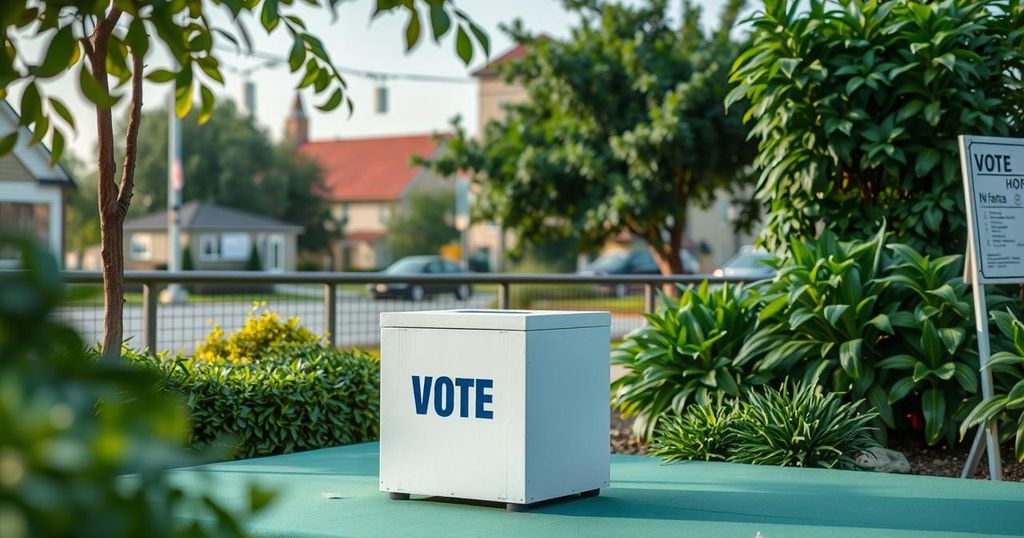Daniel Noboa Leads Presidential Vote Amid Violence and Economic Turmoil

Ecuador’s presidential election revealed President Daniel Noboa with a slight lead at 45% against Luisa Gonzalez at 43%. A second-round runoff is likely due to neither candidate achieving the required majority. The election is seen as a crucial indicator for Noboa’s handling of economic and security issues exacerbated by cartel violence.
In the recent presidential election in Ecuador, President Daniel Noboa maintained a slim lead amid significant violence and political tension. With roughly half of the votes counted, Noboa obtained 45 percent, while his leftist challenger, Luisa Gonzalez, secured an unexpected 43 percent. A second-round runoff appears likely, as neither candidate is projected to reach the requisite 50 percent threshold for outright victory.
The election serves as a critical referendum on Noboa’s handling of the country’s economic struggles and escalating violence from drug cartels. In just a matter of years, Ecuador has seen a disturbing rise in crime rates, transforming it from one of the safest nations into a hotspot for murder and extortion. Noboa has made a hardline approach against this violence central to his governance, employing military intervention and additional powers.
On election day, Noboa had soldiers deployed at polling stations nationwide, and land borders with Colombia and Peru were secured. Both candidates remained under close protection by special forces, acting in light of past political violence, including the assassination of a candidate in the preceding election cycle. However, only minor infractions were reported during voting, with about 20 individuals cited for violating an alcohol ban.
As results began to emerge, Noboa’s supporters celebrated in the streets of Quito and Guayaquil, indicating a readiness for continued support of his administration. Gonzalez’s political backer, former president Rafael Correa, expressed optimism about Gonzalez’s chances of eventual success in the electoral contest.
At only 37 years of age, Noboa is among the youngest world leaders. His campaign has utilized vibrant social media strategies to appeal to younger voters while his hardline policies are often juxtaposed with more personal and relatable appearances. Critics, including human rights organizations, have raised concerns about his governance, including allegations of military excess that have led to significant abuses.
Ecuador’s current turmoil has deterred both tourists and investors, aggravating existing challenges in its economy, which many believe has entered a recession. Noboa’s administration has sought assistance from the International Monetary Fund to secure vital financial support. Gonzalez, however, assured voters of her commitment to maintain cooperation with the IMF, provided they avoid imposing burdensome policies on the populace.
The anticipated return of numerous migrants, potentially leading to decreased remittances, may further compound the economic challenges facing Ecuador. A significant voter turnout of 13 to 14 million was anticipated in the election, with the prospect of a runoff on April 13, should neither candidate achieve the necessary vote share.
Ecuador has recently been grappling with severe issues related to crime driven by drug trafficking, which have escalated survival challenges for its citizens. The government, under President Daniel Noboa, has deployed a militaristic response to address these issues, invoking state emergencies and executive authority to combat rampant violence. With general elections taking place amid heightened security threats, the implications of the results are crucial for political stability and popular governance in the country.
The presidential election in Ecuador highlights a nation at a crossroads, marred by violence and economic instability. Daniel Noboa’s slight lead amid a fierce challenge from Luisa Gonzalez indicates potential for a runoff, reflecting the divided sentiment among the electorate. This election is pivotal for determining the future path of governance and the response to systemic issues plaguing Ecuador.
Original Source: www.roanecounty.com






